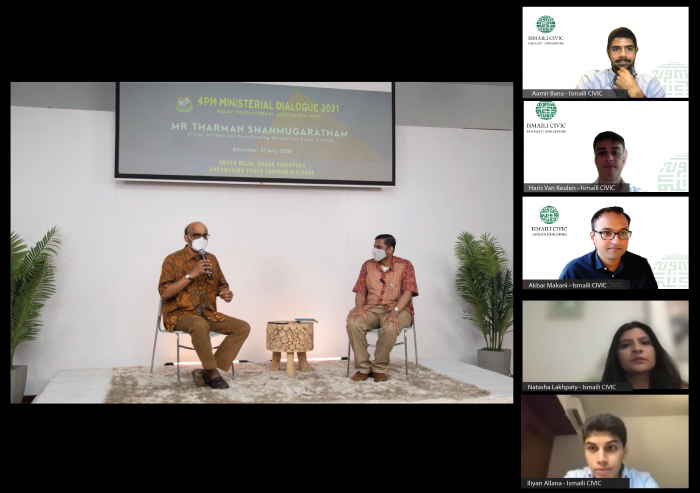After the temporary closure of several centres, the community was deprived of the opportunity to celebrate important occasions together in person. As a result, the institutions sought ways to share the spirit and joy of these occasions through virtual means.
To commemorate Imamat Day 2020, the Far East Council led the production of a song entitled “Mawla Mera Ishq Tu” (which translates to “Mawla You Are My Love”). The song was a collaboration between 63 Ismaili artists from across the globe and received over 150,000 views on Facebook and YouTube within the first week of its release, allowing Ismailis around the world to share in the joy of Imamat Day during lockdown. This was one of the first significant global pieces of musical work produced and performed by members of the Far East community.
On the occasion of Eid-ul-Fitr, a virtual programme entitled “Eid Ke Rang Far East Ke Sang” was organised for the community. The programme included stories on the significance of Eid, musical and cultural performances, and messages from the leadership. Over 3,500 Jamati members from the Far East and other parts of the world viewed the programme and participated in the shared celebration of Eid from their homes. One viewer commented, “We are connected despite not being physically present. There is a shared harmony and joy based on shared ethics and values.”
Online sessions and webinars were regularly arranged to keep everyone engaged during their time at home. Some webinars covered religious topics to help the community stay connected with their faith. Fitness programmes, webinars on mental health, and technology training sessions were arranged to ensure the community’s wellbeing amidst the physical and mental strain of lockdown. Several webinars were arranged for informative purposes and covered a range of topics such as honing English language skills, planting and recycling for environmental conservation, and personal financial management during the pandemic.
While centres were closed, the institutions took steps to communicate with community members on a regular basis and keep everyone connected despite the physical distance between them. The leadership circulated messages and participated in webinars while representatives of the Council regularly contacted members to ensure their safety and well-being. The Council also released regular updates on the pandemic with global statistics and specific details on how Far Eastern countries were responding to Covid-19, ensuring the community was a consistent and reliable source of information.
As physical distance kept the community apart, technology enabled institutions to reach out to the community and give them a sense of belonging and reassurance. Azmin Saduruddin, Vice President of the Ismaili Council for Far East, noted that the challenges of lockdown have strengthened unity within the Jamat.
“In these uncertain times, isolation and quarantine may seem to keep us apart but in fact with the help of technology it has brought the Far East and the worldwide community closer together,” he said. “The institutions have embraced creativity and innovation to facilitate online seminars, learning programmes, and entertainment by interacting with seniors, youth, and the children via a range of interactive online platforms.”









